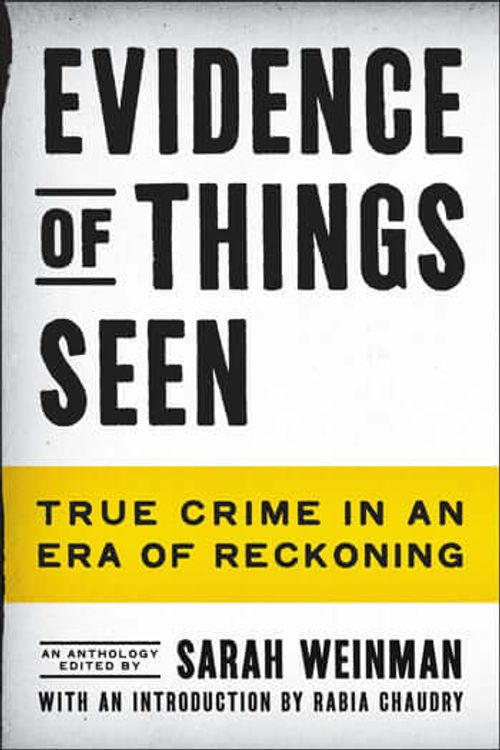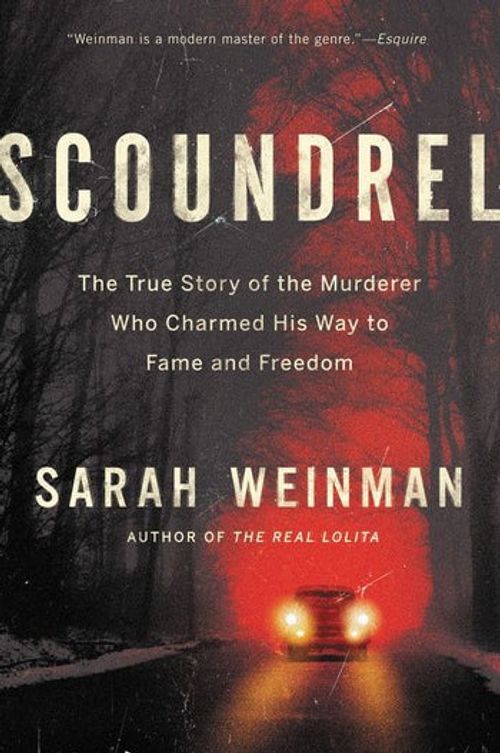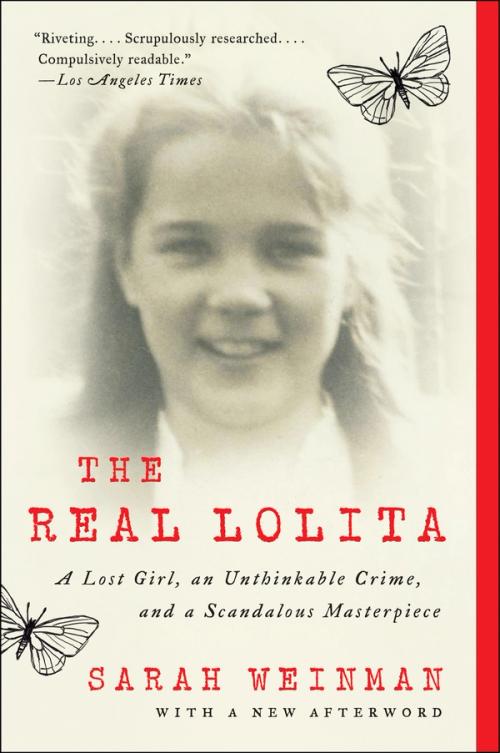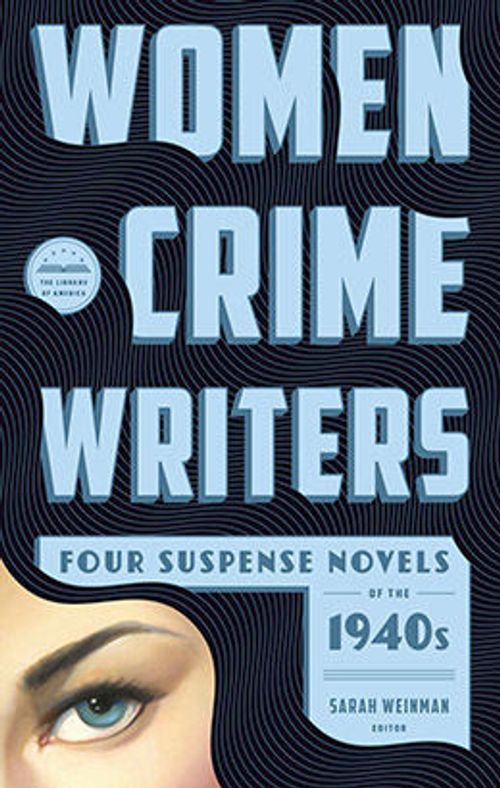Without Consent

Clothbound
- ISBN
- 9780063279889
- Publisher
- Ecco
- Publication Date
- Nov, 11 2025
Ebook
- ISBN
- 9780063279902
audiobook
- ISBN
- 9780063279919
- Publisher
- Ecco
- Publication Date
- Nov, 11 2025
From Sarah Weinman, author of Scoundrel and The Real Lolita, comes an eye-opening story about the first major spousal rape trial in America and urgent questions about women’s rights that would reverberate for decades.
In December 1978, Greta Rideout bravely testified that her husband, John, whom she still lived with, had raped her. She was the first woman in United States history to do this, at a time when the idea of “marital rape” seemed ludicrous to many Americans and was a crime in only four states. After a quick and conservative trial acquitted John Rideout and a defense lawyer lambasted that rape was perhaps "the risk of being married," Greta was ridiculed and scorned from public life, while John went on to be a repeat offender. Thrust into the national spotlight, Greta and her story would become a national sensation, a symbol of a country’s unrelenting and targeted hate toward women and a court system designed to fail them at every turn.
A now little-remembered trial deserving of close, wide, and lasting attention, Sarah Weinman turns her signature intelligence and journalistic rigor to the enduring impact of this case. Oregon v. Rideout directly inspired feminist activists, who fought state by state for marital rape laws, a battle that was not won in all fifty until as recently as 1993. Mixing archival research and new reporting involving Greta, other women victimized by John in later years, as well as the activists battling the courts in parallel, Without Consent embodies vociferous debates about gender, sexuality, and power, while highlighting the damaging and inherent misogyny of American culture then and still now.
Praise for Without Consent
“"A searing, thoroughly researched examination of misogyny in past and present American culture — a particularly important history to understand now, as women’s rights are under attack.”
Evidence of Things Seen

Clothbound
- ISBN
- 9780063323926
- Publisher
- Ecco
- Publication Date
- Jul, 03 2023
Paperback
- ISBN
- 9780063233928
- Publisher
- Ecco
- Publication Date
- Jul, 03 2023
Ebook
- ISBN
- 9780063233935
- Publisher
- Ecco
- Publication Date
- Jul, 14 2023
From Sarah Weinman, the award-winning editor of Unspeakable Acts, a groundbreaking new anthology showcasing the future of the true crime genre.
True crime, as an entertainment genre, has always prioritized clear narrative arcs: victims wronged, police detectives in pursuit, suspects apprehended, justice delivered. But what stories have been ignored?
In Evidence of Things Seen, fourteen of the most innovative crime writers working today cast a light on the cases that give crucial insight into our society. Wesley Lowery writes about a lynching left unsolved for decades by an indifferent police force and a family’s quest for answers. Justine van der Leun reports on the thousands of women in prison for defending themselves from abuse. May Jeong reveals how the Atlanta spa shootings tell a story of America.
Edited by acclaimed writer Sarah Weinman, and with an introduction by attorney and host of the Undisclosed podcast Rabia Chaudry, this anthology pulls back the curtain on how crime itself is a by-product of America’s systemic harms and inequalities. And in doing so, it reveals how the genre of true crime can be a catalyst for social change. These works combine brilliant storytelling with incisive cultural examinations—and challenge each of us to ask what justice should look like. Evidence of Things Seen introduces the new classics of true crime.
Scoundrel

Paperback
- ISBN
- 9780062899774
- Publisher
- Ecco
- Publication Date
- Feb, 07 2023
Clothbound
- ISBN
- 9780062899767
- Publisher
- Ecco
- Publication Date
- Feb, 22 2022
Ebook
- ISBN
- 9780062899798
- Publisher
- Ecco
- Publication Date
- Feb, 22 2022
From the author of The Real Lolita and editor of Unspeakable Acts, the astonishing story of a murderer who conned the people around him—including conservative thinker William F. Buckley—into helping set him free
In the 1960s, Edgar Smith, on New Jersey’s death row for the murder of teenager Victoria Zielinski, struck up a correspondence with William F. Buckley, the founder of National Review. Buckley, who refused to believe that a man who supported the conservative movement could have committed such a heinous crime, began to advocate not only for Smith’s life to be spared but also for his sentence to be overturned.
So begins a bizarre and tragic tale of mid-century America. Sarah Weinman’s Scoundrel leads us through the twists of fate and fortune that brought Smith to freedom, book deals, fame, and eventually to attempting murder again. In Smith, Weinman has uncovered a psychopath who slipped his way into public acclaim and acceptance before crashing down to earth once again.
From the people Smith deceived—Buckley, the book editor who published his work, friends from back home, and the women who loved him—to Americans who were willing to buy into his lies, Weinman explores who in our world is accorded innocence, and how the public becomes complicit in the stories we tell one another.
Scoundrel shows, with clear eyes and sympathy for all those who entered Smith’s orbit, how and why he was able to manipulate, obfuscate, and make a mockery of both well-meaning people and the American criminal justice system. It tells a forgotten part of American history at the nexus of justice, prison reform, and civil rights, and exposes how one man’s ill-conceived plan to set another man free came at the great expense of Edgar Smith’s victims.
Praise for Scoundrel
“[A] strange and compelling tale… [Scoundrel] is a psychologically fascinating must-read for true-crime buffs.
Unspeakable Acts: True Tales of Crime, Murder, Deceit, and Obsession

Paperback
- ISBN
- 9780062839886
- Publisher
- Ecco
- Publication Date
- Jul, 28 2020
Ebook
- ISBN
- 9780062839992
- Publisher
- Ecco
- Publication Date
- Jul, 28 2020
A brilliant anthology of modern true-crime writing that illustrates the appeal of this powerful and popular genre, edited and curated by Sarah Weinman, the award-winning author of The Real Lolita
The appeal of true-crime stories has never been higher. With podcasts like My Favorite Murder and In the Dark, bestsellers like I’ll Be Gone in the Dark and Furious Hours, and TV hits like American Crime Story and Wild Wild Country, the cultural appetite for stories of real people doing terrible things is insatiable.
Acclaimed author of The Real Lolita and editor of Women Crime Writers: Eight Suspense Novels of the 1940s & 50s (Library of America) and Troubled Daughters, Twisted Wives (Penguin), Sarah Weinman brings together an exemplary collection of recent true crime tales. She culls together some of the most refreshing and exciting contemporary journalists and chroniclers of crime working today. Michelle Dean’s “Dee Dee Wanted Her Daughter To Be Sick” went viral when it first published and is the basis for the TV show The Act and Pamela Colloff’s “The Reckoning,” is the gold standard for forensic journalism.
As a collection, these thirteen pieces showcase writing about true crime across the broadest possible spectrum, while also reflecting what makes crime stories so transfixing and irresistible to the modern reader.
Praise for Unspeakable Acts: True Tales of Crime, Murder, Deceit, and Obsession
“Essential reading for all true crime fans.
The Real Lolita

Paperback
- ISBN
- 9780062661937
- Publisher
- Ecco
- Publication Date
- Sep, 10 2019
Clothbound
- ISBN
- 9780062661920
- Publisher
- Ecco (US)
- Publication Date
- Sep, 11 2018
Ebook
- ISBN
- 9780062661944
- Publication Date
- Sep, 11 2018
A gripping true-crime investigation of the 1948 abduction of Sally Horner and how it inspired Vladimir Nabokov’s classic novel, Lolita
Vladimir Nabokov’s Lolita is one of the most beloved and notorious novels of all time. And yet very few of its readers know that the subject of the novel was inspired by a real-life case: the 1948 abduction of eleven-year-old Sally Horner.
Weaving together suspenseful crime narrative, cultural and social history, and literary investigation, The Real Lolita tells Sally Horner’s full story for the very first time. Drawing upon extensive investigations, legal documents, public records, and interviews with remaining relatives, Sarah Weinman uncovers how much Nabokov knew of the Sally Horner case and the efforts he took to disguise that knowledge during the process of writing and publishing Lolita.
Sally Horner’s story echoes the stories of countless girls and women who never had the chance to speak for themselves. By diving deeper in the publication history of Lolita and restoring Sally to her rightful place in the lore of the novel’s creation, The Real Lolita casts a new light on the dark inspiration for a modern classic.
Praise for The Real Lolita
“Superb…A compelling investigation…Weinman has evocatively reconstructed Sally’s nightmare.
Women Crime Writers: Four Suspense Novels of the 1950s

Paperback
- ISBN
- 9781598534313
- Publisher
- Library of America
- Publication Date
- Sep, 01 2015
Ebook
In place of the mean and violent streets evoked by Dashiell Hammett and Raymond Chandler, the pioneering women crime writers of the 1940s and ’50s uncovered the roots of fear and mania in a quiet suburban neighborhood or a comfortable midtown hotel or the insinuating voice of a stranger on the telephone.
This volume, the second of a two-volume collection, brings together four classics of the 1950s that testify to the centrality of women writers in the canon of American crime fiction. Each in its own way examines not only an isolated crime but the society that nurtures murderous rages and destructive suspicions.
Charlotte Armstrong’s Mischief (1950) stages a parental nightmare in a midtown Manhattan hotel, as an out-of-town mother reluctantly leaves her child in the care of a stranger so that she can accompany her husband to a banquet where he is the guest of honor. This fateful decision unleashes the barely submerged forces of chaos that haunt modern urban life.
In The Blunderer (1954), Patricia Highsmith tracks two men, strangers to each other, whose destinies become intertwined when one becomes obsessed with a crime committed by the other. Highsmith’s gimlet-eyed portrayals of failed marriages and deceptively congenial middle-class communities lend a sardonic edge to this tale of intrigue and ineptitude.
In Beast in View (1955), Margaret Millar’s intricately constructed tour de force of insidiously mounting tension, a voice from a woman’s past unleashes a campaign of terror by telephone. As the threats mount, the facades of ordinary life are stripped away to reveal unsuspected depths of resentment and madness.
Two teenagers fresh out of stir after a bungled robbery set their sights on what looks like easy money in Dolores Hitchens’s Fools’ Gold (1958)—and get a painful education in how quickly and drastically a simple plan can spin out of control. The basis for Jean-Luc Godard’s film Band of Outsiders, this sharply told tale is distinguished by its nuanced portrait of a sheltered young woman who becomes a reluctant accomplice and fugitive.
Visit the companion website for more on these works and writers, including jacket art and photographs, chronologies of crime novels by women and movie adaptations, and new appreciations by Megan Abbott, Charles Finch, Laura Lippman, Sara Paretsky, Lisa Scottoline, Karin Slaughter, Duane Swierczynski, and Lisa Unger.
This Library of America series edition is printed on acid-free paper and features Smyth-sewn binding, a full cloth cover, and a ribbon marker.
Praise for Women Crime Writers: Four Suspense Novels of the 1950s
“A must-read for anyone who loves noir.
Women Crime Writers: Four Suspense Novels of the 1940s

Clothbound
- ISBN
- 9781598534306
- Publisher
- Library of America
- Publication Date
- Sep, 01 2015
Ebook
- ISBN
- 9781598534566
This collection, the first of a two-volume omnibus, presents four classics of the 1940s overdue for fresh attention. Anticipating the “domestic suspense” novels of recent years, these four gripping tales explore the terrors of the mind and of family life, of split personality and conflicted sexual identity.
Women writers have always had a central place in American crime writing, although one wouldn’t know it for all the attention focused on the men of the hardboiled school. This collection, the first of a two-volume omnibus, presents four classics of the 1940s overdue for fresh attention. Anticipating the “domestic suspense” novels of recent years, these four gripping tales explore the terrors of the mind and of family life, of split personality and conflicted sexual identity.
Vera Caspary’s Laura (1943) begins with the investigation into a young woman’s murder and blossoms into a complex study, told from multiple viewpoints, of the pressures confronted by a career woman seeking to lead an independent life. Source of the celebrated film by Otto Preminger, Caspary’s novel has depths and surprises of its own. As much a novel of manners as of mystery, it remains a superb evocation of a vanished Manhattan.
Helen Eustis’s The Horizontal Man (1946) won an Edgar Award for best first novel and continues to fascinate as a singular mixture of detection, satire, and psychological portraiture. A poet on the faculty of an Ivy League school (modeled on Eustis’s alma mater, Smith College) is found murdered, setting off ripple effects of anxiety, suspicion, and panic in the hothouse atmosphere of an English department rife with talk of Freud and Kafka.
With In a Lonely Place (1947), Dorothy B. Hughes created one of the first full-scale literary portraits of a serial murderer. The streets of Los Angeles become a setting for random killings, and Hughes ventures, with unblinking exactness, into the mind of the killer. In the process she conjures up a potent mood of postwar dread and lingering trauma.
Raymond Chandler called Elisabeth Sanxay Holding “the top suspense writer of them all.” In The Blank Wall (1947) she constructs a ferociously taut drama around the plight of a wartime housewife forced beyond the limits of her sheltered domestic world in order to protect her family. The barely perceptible constraints of an ordinary suburban life become a course of obstacles that she must dodge with the determination of a spy or criminal.
Psychologically subtle, socially observant, and breathlessly suspenseful, these four spellbinding novels recapture a crucial strain of American crime writing.
Visit the companion website for more on these works and writers, including jacket art and photographs, chronologies of crime novels by women and movie adaptations, and new appreciations by Megan Abbott, Charles Finch, Laura Lippman, Sara Paretsky, Lisa Scottoline, Karin Slaughter, Duane Swierczynski, and Lisa Unger.
This Library of America series edition is printed on acid-free paper and features Smyth-sewn binding, a full cloth cover, and a ribbon marker.
Praise for Women Crime Writers: Four Suspense Novels of the 1940s
“Gripping…Glimpses into Nabokov’s process will tantalize die-hard fans, and true crime aficionados will relish Weinman’s assiduous reporting.